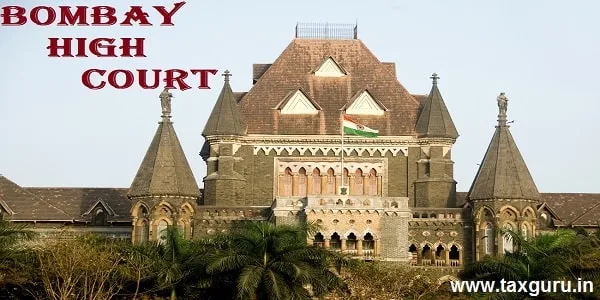Introduction
The National Company Law Tribunal (NCLT) is a quasi-judicial body established under the Companies Act, 2013 in India. It is responsible for adjudicating and resolving corporate disputes and matters related to companies, insolvency, and bankruptcy. NCLT plays a crucial role in maintaining transparency, efficiency, and fairness in corporate governance and ensures effective enforcement of company law.
Page Contents
- 1. What is the power of National Company Law Tribunal?
- 2. What are the powers and functions of NCLAT?
- 3. What do you understand by NCLT?
- 4. What are the powers of NCLT regarding winding up?
- 5. What are the functions and powers of NCLT and NCLAT?
- 6. What are the functions of tribunals?
- 7. Does NCLT have power of civil court?
- 8. Who can argue in NCLT?
- 9. Who can file a case in NCLT?
- 10. Can NCLT remove directors?
- 11. What is Rule 45 of NCLT rules?
- 12. Does NCLT have power to punish contempt?
- Conclusion
1. What is the power of National Company Law Tribunal?
The NCLT holds extensive powers granted by the Companies Act, 2013. Some of its key powers include:
a. Adjudication of Corporate Disputes: NCLT has the power to adjudicate and resolve disputes related to companies, including issues of oppression and mismanagement, mergers and amalgamations, compromises and arrangements, and winding up of companies.
b. Insolvency Proceedings: NCLT is the adjudicating authority for insolvency and bankruptcy proceedings of corporate entities. It has the power to initiate and oversee the insolvency resolution process, liquidation, and restructuring of companies.
c. Approving Schemes and Restructuring: NCLT has the authority to approve or reject schemes of arrangement, mergers, demergers, and corporate restructuring plans proposed by companies.
d. Enforcement of Company Law: NCLT can enforce provisions of the Companies Act, 2013, and take necessary actions against non-compliant companies or individuals. It has the power to impose penalties, order rectification of company records, and initiate prosecution for violations.
2. What are the powers and functions of NCLAT?
The National Company Law Appellate Tribunal (NCLAT) is the appellate body for appeals against the orders of NCLT. Some of the powers and functions of NCLAT include:
a. Hear Appeals: NCLAT has the power to hear and dispose of appeals against the orders passed by NCLT in corporate matters, insolvency cases, and other related issues.
b. Review Decisions: NCLAT can review and modify the orders passed by NCLT if there is an error or if justice demands a different interpretation or outcome.
c. Provide Relief: NCLAT can provide appropriate relief to aggrieved parties, including setting aside or modifying orders, granting interim relief, or directing further actions by NCLT.
d. Maintain Judicial Precedence: NCLAT plays a crucial role in establishing and maintaining judicial precedence in matters related to company law, insolvency, and corporate governance.
3. What do you understand by NCLT?
NCLT stands for the National Company Law Tribunal. It is a specialized quasi-judicial body established under the Companies Act, 2013. NCLT replaces the erstwhile Company Law Board (CLB) and Board for Industrial and Financial Reconstruction (BIFR). Its primary objective is to consolidate and streamline the adjudication process of corporate disputes and insolvency proceedings.
NCLT consists of a Principal Bench in New Delhi and several Regional Benches located across different states in India. It comprises judicial and technical members who possess expertise in company law, insolvency, and related fields. NCLT operates in accordance with the provisions of the Companies Act, 2013, and other relevant laws and regulations.
4. What are the powers of NCLT regarding winding up?
NCLT has significant powers concerning the winding up of companies. Some of its powers in this regard include:
a. Initiation of Winding Up: NCLT has the authority to initiate the winding up process of a company based on petitions filed by creditors, shareholders, or the company itself.
b. Appointment of Official Liquidator: NCLT appoints an Official Liquidator to oversee the winding up process, including the realization and distribution of the company’s assets among the creditors.
c. Examination of Claims: NCLT examines and verifies the claims of creditors and determines the priority and manner of their settlement during the winding up process.
d. Power to Stay or Restrain Proceedings: NCLT can stay or restrain legal proceedings against the company once the winding up process has commenced to ensure a fair and orderly liquidation.
e. Dissolution of Company: NCLT has the power to order the dissolution of the company after the completion of the winding up process.
5. What are the functions and powers of NCLT and NCLAT?
The NCLT and NCLAT have specific functions and powers in relation to their roles as adjudicating bodies. The functions and powers of NCLT and NCLAT can be summarized as follows:
a. NCLT:
- Adjudication: NCLT adjudicates and resolves disputes related to companies, insolvency, and bankruptcy.
- Approvals and Sanctions: NCLT grants approvals for various corporate actions, such as mergers, amalgamations, schemes of arrangement, and compromises.
- Rehabilitation and Restructuring: NCLT oversees the rehabilitation and restructuring of financially distressed companies to facilitate their revival.
- Winding Up: NCLT has the authority to initiate and supervise the winding up of companies.
- Enforcement: NCLT enforces provisions of the Companies Act, 2013, and takes appropriate actions against non-compliant companies and individuals.
b. NCLAT:
- Appeals: NCLAT hears and disposes of appeals against the orders of NCLT, providing an appellate remedy to aggrieved parties.
- Review and Modification: NCLAT reviews the decisions of NCLT and can modify or set aside orders if necessary.
- Judicial Precedence: NCLAT plays a significant role in maintaining judicial precedence and consistency in matters related to company law and insolvency.
- Relief and Interim Orders: NCLAT can provide relief to parties through interim orders, ensuring fair and just resolution of disputes.
- Appellate Jurisdiction: NCLAT exercises appellate jurisdiction over orders passed by NCLT and ensures the proper application of law and justice.
6. What are the functions of tribunals?
Tribunals are specialized judicial bodies established to resolve specific types of disputes or administer justice in particular areas of law. Some common functions of tribunals include:
a. Dispute Resolution: Tribunals provide an alternative mechanism for resolving disputes outside the traditional court system. They offer specialized expertise and streamlined procedures, ensuring efficient and effective resolution of disputes.
b. Administrative Adjudication: Tribunals adjudicate matters related to administrative law, including disputes between individuals and government departments or regulatory bodies.
c. Expertise and Specialization: Tribunals are staffed by members who possess expertise and experience in specific areas of law. They ensure that the adjudication process is conducted by knowledgeable professionals.
d. Procedural Flexibility: Tribunals have the flexibility to adopt procedures that are appropriate for the nature of the dispute, ensuring a fair and efficient resolution.
e. Quasi-Judicial Powers: Tribunals exercise quasi-judicial powers, including the power to summon witnesses, examine evidence, and make binding decisions.
7. Does NCLT have power of civil court?
Yes, the NCLT is vested with certain powers of a civil court. While it is not a full-fledged civil court, it possesses several powers similar to those of a civil court. These powers allow NCLT to effectively adjudicate and resolve corporate disputes and matters related to company law.
Some of the powers of NCLT that resemble those of a civil court include:
a. Summoning and Examination: NCLT has the authority to summon witnesses, examine them on oath, and compel the production of documents.
b. Discovery and Inspection: NCLT can order the discovery and inspection of documents relevant to the proceedings.
c. Enforcement of Attendance: NCLT can enforce the attendance of witnesses and the production of documents through appropriate mechanisms.
d. Contempt of Court: NCLT can initiate contempt proceedings against parties or individuals who fail to comply with its orders or obstruct the administration of justice.
However, it is important to note that NCLT’s jurisdiction is limited to corporate and company law matters and does not extend to general civil disputes.
8. Who can argue in NCLT?
In NCLT, legal professionals such as advocates and lawyers can represent and argue on behalf of the parties involved in the proceedings. However, there are certain restrictions and qualifications for who can argue in NCLT:
a. Advocates and Lawyers: Advocates who are enrolled with the Bar Council of India and authorized to practice law can represent the parties in NCLT. They possess the necessary knowledge and expertise in company law and related areas.
b. Chartered Accountants and Company Secretaries: Qualified professionals like Chartered Accountants and Company Secretaries, who are members of their respective professional bodies, can also represent parties in NCLT.
c. Authorized Representatives: Individuals who are authorized by the parties, such as directors or authorized employees of the company, can appear and argue on behalf of the company.
It is important to engage competent legal professionals who are well-versed in company law and have experience in dealing with NCLT matters to ensure effective representation and legal advocacy.
9. Who can file a case in NCLT?
Certain parties have the right to file cases or applications before the NCLT. The following parties can file a case in NCLT:
a. Shareholders and Creditors: Shareholders of a company, including minority shareholders, can file cases against any alleged oppression or mismanagement by the majority shareholders or company management. Creditors can also file cases in matters relating to the insolvency or winding up of a company.
b. The Company Itself: A company can file an application before NCLT for various matters, such as merger and amalgamation, scheme of arrangement, reduction of share capital, and other corporate actions requiring the approval of NCLT.
c. Central Government or Regulators: The Central Government or regulatory bodies such as the Registrar of Companies or the Securities and Exchange Board of India (SEBI) can file cases for violations of company law, fraud, or non-compliance by companies or their officers.
It is important to note that the party filing the case must have sufficient grounds and legal standing to seek relief from NCLT. The filing party should engage competent legal counsel to ensure proper presentation of their case before the tribunal.
10. Can NCLT remove directors?
Yes, NCLT has the power to remove directors from their positions in certain circumstances. Under the Companies Act, 2013, NCLT can remove directors on the following grounds:
a. Oppression and Mismanagement: NCLT can order the removal of directors if they are found to have been involved in acts of oppression or mismanagement of the company. Oppression refers to conduct that unfairly prejudiced the rights of shareholders or involves the abuse of corporate power, while mismanagement refers to acts that are detrimental to the company’s interests.
b. Default in Filing Annual Returns: NCLT can remove directors if the company fails to file its annual returns or financial statements for a continuous period of three financial years.
c. Unfit Conduct: NCLT can remove directors if they are found to be involved in conduct that renders them unfit to continue holding the position, such as engaging in fraudulent activities, acting against the interests of the company, or being disqualified under the law.
The removal of directors by NCLT is a significant decision that is taken after due process and consideration of the facts and circumstances of the case. The directors in question have the right to present their case and defend themselves during the proceedings.
11. What is Rule 45 of NCLT rules?
Rule 45 of the National Company Law Tribunal (NCLT) Rules, 2016 pertains to the “Procedure for Oppression and Mismanagement” cases. It outlines the process and procedure to be followed by parties filing cases related to oppression and mismanagement before NCLT.
Under Rule 45, the following key provisions apply:
a. Filing of Application: The party seeking relief must file an application in the prescribed format before NCLT, along with the necessary supporting documents and fees.
b. Notice to Respondents: NCLT issues notices to the respondents, including the company, its directors, and other interested parties, informing them about the application and fixing a date for the hearing.
c. Reply and Evidence: The respondents have the opportunity to file their reply to the application, along with supporting evidence and documents, within the stipulated time.
d. Hearing and Orders: NCLT conducts hearings to consider the arguments and evidence presented by both parties. After examining the case, NCLT may pass appropriate orders, including removal of directors, appointment of new directors, or any other relief deemed necessary.
Rule 45 ensures a fair and transparent procedure for handling oppression and mismanagement cases before NCLT, allowing the parties involved to present their case and seek appropriate relief.
12. Does NCLT have power to punish contempt?
Yes, the National Company Law Tribunal (NCLT) has the power to punish contempt of court. Contempt of court refers to any willful disobedience or disrespect shown towards the authority or dignity of the court, which obstructs or interferes with the administration of justice.
Under the Contempt of Courts Act, 1971, and other relevant laws, NCLT can take action against parties or individuals who commit contemptuous acts during the proceedings. This includes:
a. Disobedience of Orders: If a party willfully disobeys any order or direction of NCLT, it can be held in contempt.
b. Interference with Proceedings: Any act or conduct that interferes with or obstructs the functioning of NCLT or hampers the administration of justice can be treated as contempt.
c. Disrespectful Behavior: Any disrespectful behavior, such as using offensive language, making baseless allegations, or showing disrespect to the tribunal or its members, can be deemed contemptuous.
NCLT has the power to initiate contempt proceedings, summon the alleged contemnor, hear the case, and if found guilty, impose appropriate punishments, including fines or imprisonment, as prescribed by law.
Conclusion
The National Company Law Tribunal (NCLT) plays a crucial role in resolving corporate disputes and matters related to company law, insolvency, and bankruptcy. With its extensive powers, NCLT ensures the effective enforcement of company law, facilitates corporate restructuring and rehabilitation, and safeguards the interests of shareholders, creditors, and other stakeholders. Understanding the powers and functions of NCLT is essential for individuals and companies involved in corporate matters, as it enables them to navigate the legal landscape and seek appropriate redressal. By providing a fair and efficient adjudication process, NCLT contributes to the transparency and stability of the corporate sector in India.





















